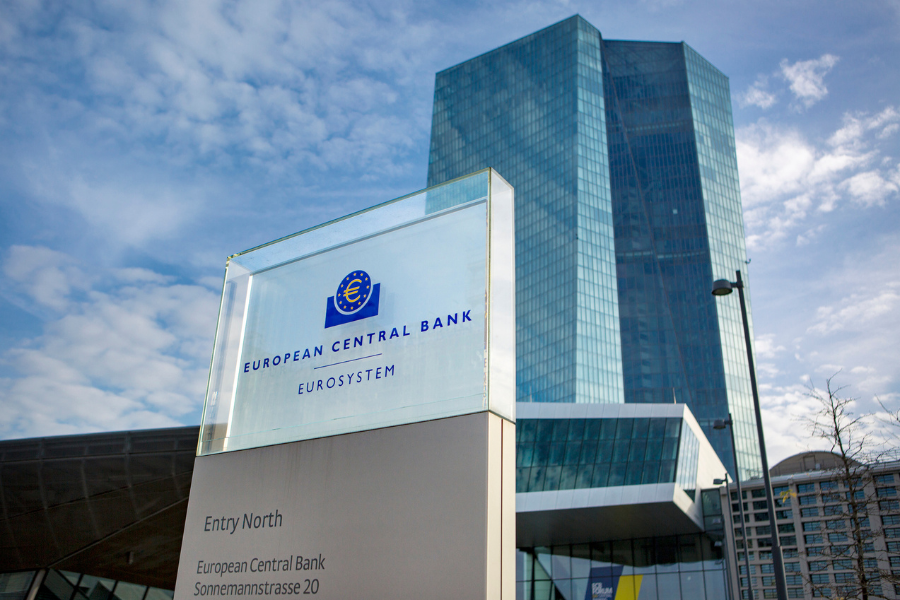

Euro-area inflation unexpectedly quickened, an outcome that may make the European Central Bank warier about cutting interest rates further.
Consumer prices rose 2.6% in July from a year earlier, Eurostat said on Wednesday. That exceeded the 2.5% result in June, which was also the median estimate of analysts in a Bloomberg survey.
Core inflation, which excludes volatile components like food and energy, held at 2.9% for a third month. Economists had forecast a slight deceleration.
The report is one of two crucial monthly inflation readings that will inform ECB officials before their Sept. 11-12 meeting, when investors expect them to follow up their initial rate cut in June with a second move.
Money markets held wagers on the scope for interest-rate cuts steady, betting on 57 basis points of easing by year-end, while a quarter-point reduction in September remains all but certain.
Another significant factor for ECB policymakers may be indications of any prospective easing by the US Federal Reserve, whose latest decision is due on Wednesday.
The euro-zone reading follows diverging reports from across the region. In its biggest economy, Germany, price growth unexpectedly accelerated, while Spain’s outcome showed a surprisingly drastic slowdown. France and Italy also saw higher rates.
Policymakers watching for any lingering price pressures are paying particularly close attention to services, which they judge to be an area most at risk of rising wages.
The data showed inflation there to be 4% in July, slowing for the first time in three months.
“Deviations can ultimately turn out to be a one-off, but they could also be more systematic,” ECB Executive Board member Isabel Schnabel said last week. “That is why we are currently looking so closely at services inflation, because it has several times been higher than expected of late.”
Consumer-price growth has now exceeded the 2% goal in every month since the middle of 2021, frustrating policymakers after an initial slowdown effectively stalled and turned their task into a longer-term slog.
The ECB reckons that inflation will remain above the target “well into next year,” President Christine Lagarde warned earlier in July.
Further complicating the central bank’s judgment is evidence of uneven growth in data released this week. Germany’s economy unexpectedly shrank in the second quarter, while France and Spain both outperformed forecasts, and Italy slowed slightly.
Investors are currently pricing in at least two more rate cuts this year.

A new analysis finds long-running fiscal woes coupled with impacts from the One Big Beautiful Bill Act stand to erode the major pillar for retirement income planning.

Caz Craffy, whom the Department of Justice hit with a 12-year prison term last year for defrauding grieving military families, has been officially exiled from the securities agency.

After years or decades spent building deep relationships with clients, experienced advisors' attention and intention must turn toward their spouses, children, and future generations.

The customer’s UBS financial advisor allegedly mishandled an options strategy called a collar, according to the client’s attorney.

An expansion to a 2017 TCJA provision, a permanent increase to the standard deduction, and additional incentives for non-itemizers add new twists to the donate-or-wait decision.
Orion's Tom Wilson on delivering coordinated, high-touch service in a world where returns alone no longer set you apart.
Barely a decade old, registered index-linked annuities have quickly surged in popularity, thanks to their unique blend of protection and growth potential—an appealing option for investors looking to chart a steadier course through today's choppy market waters, says Myles Lambert, Brighthouse Financial.
